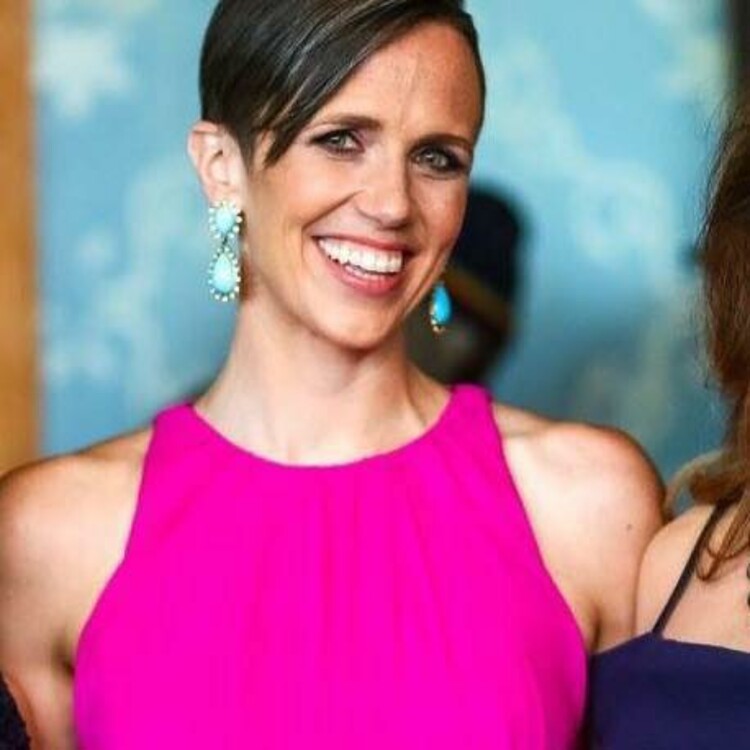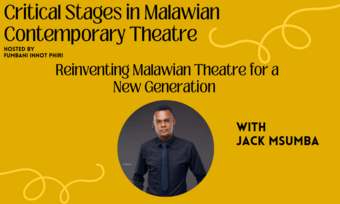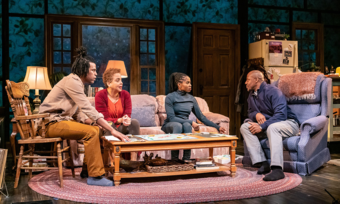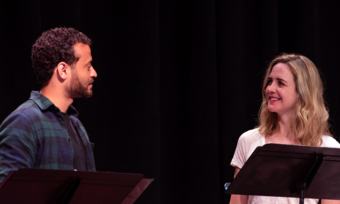Choosing the Kiddie Table
Thanksgiving, the simplest and most wonderful of holidays, was complicated at Granny’s house. I couldn’t quite hang in through the premeal two-hand touch football game (my interest waned after a couple of plays). My Granny’s bunny-eared antennae didn’t hold reception long enough to get a satisfying view of the Macy’s Thanksgiving Day Parade. I was expected to (at least) taste the strange carrot-raisin-mayonnaise salad. My Granny’s house was old; the kitchen was small. Our family didn’t have the kiddie table. We had the kiddie room: the place to which all child-sized things were banished. Including me.
I stirred the carrot-raisin-mayonnaise malaise on my plate to create the illusion that some tasting had occurred. I secretly longed for the days when one of those adult family members would renounce holidays. To envision one of the grown ups screaming, “That’s it! You’ve ruined Thanksgiving!” while storming out of my Granny’s house with my eight-year-old self in tow gave me immense pleasure. Then, finally, I would be free from the boredom and humiliation of the assigned kiddie table.
Let us break away from the Thanksgiving table to the warmer climes of springtime Tempe, Arizona. In the desert this past March another annual tradition took new shape. An invigorating shake up of a new play development conference that once upon a time was known as the Bonderman Youth Playwriting Symposium, re-envisioned this year as Write Now. (I am happy to share that no adults stormed out in the innovation of this ritual.) The Bonderman began in 1983 under the leadership of Indiana University-Purdue University Indianapolis (IUPUI) theatre professor Dorothy Webb with a straightforward aim: to “facilitate the creation of new, good-quality theatre for children.” Over three decades the Bonderman grew from a small play festival into a burgeoning national conference biennially held at Indiana Repertory Theatre (IRT). However, in 2010, Dr. Webb informed IRT of her intent to retire from the Festival and the Bonderman family's funding concluded. IRT determined that the Festival either needed to be reimagined with a national theatre for young audiences (TYA) partner or quietly retired.
Chemistry is oftentimes the make or break component of any gathering, be it Thanksgiving or new play development. Over the past few years, Artistic Directors Janet Allen (IRT) and David Saar (Childsplay) discussed the possibility of “sharing” a revitalized Bonderman. After a joint meeting in Indianapolis in May 2011, the two organizations agreed that there was significant potential for a new festival that connected to a broader portion of the field. With support from Doris Duke Charitable Foundation, the Childsplay and IRT game teams (Janet and David, joined by James Still and Jenny Millinger) set out to reimagine Write Now rather than passively absorb previous festivals. The geography alone would require both organizations to pay special attention to nimble framework, as they opted to move the festival between Tempe and Indianapolis in rotating bienniums.
One new, key component of Write Now is to provide a formal platform to seed artistic collaborations between traditional TYA organizations and LORT houses and small/mid-range theatres. Embedded alliances within Write Now’s infrastructure, like the partnership between IRT and Childsplay, signifies a cultural shift in the life of this play development process. The two organizations align in an unwavering commitment to make high quality work for all of their audiences, young and old alike. Now, through their sharing of Write Now they set forth a charge to other theatres to build playmaking opportunities that invite this kind of collaborative infrastructure. This notion goes beyond the typical coproduction model and speaks more to a long view of partnering and shared ownership.

Now, through their sharing of Write Now they set forth a charge to other theatres to build playmaking opportunities that invite this kind of collaborative infrastructure.
What’s Thanksgiving without the mashed potatoes or cranberry sauce? Some dishes just deliver year after year. Likewise some “sacreds” from the Bonderman remain important foundations for Write Now. It was to remain a playwright-driven process; all writers were welcomed to submit regardless of production experience, and playwrights did not have to be affiliated with any theatre company in order to apply. A blind adjudication process narrowed the 110-plus submissions (up significantly this year) to four finalists. This year’s plays—Birdsong by Nicholas Kryah, The Smartest Girl in the World by Miriam Gonzalez, The Boy Who Loved Monsters and the Girl who Loved Peas by Jonathan Graham, and Bloom by Andrew Morton—received a weeklong development process with professional directors, dramaturges, and local, age-appropriate audiences. In addition to development, a three-day national gathering of TYA professionals was held to discuss issues important to the field and share the plays. The team invited Jason Loewith, Artistic Director at Olney Theatre Center, and former director of National New Play Network, to lead a half-day session drawing out tangible ideas about collaboration, which sparked exciting conversations among participants from all over the country.
How do we continue to make Write Now an event and a process that feeds (rather than drains) our community? I am happy to join the good company wrestling with that question when I begin my new position as associate artistic director at IRT. The 2015 organizers are already discussing ways that the conference can address some of the unique challenges facing TYA and our communities. These concerns represent a wide range—everything from how to embed perceived gatekeepers in the creative process to maintaining momentum between conferences, to more simply, how do we get to know one another better? These questions won’t dissolve in two years. However, the “connective” thinking that exudes from this gathering heartens me. Two of the four scripts from 2013 Write Now are slated for production in theatres (conference attendees) next season. I felt similar “connective” thinking on my pick-your-own-seat return flight to Austin seated next to Emily Freeman, a TYA artist/educator and conference presenter (creator of And Then Came Tango) as well as playwright David Turkel, who happened to be flying back from visiting his partner for spring break. Both Emily and David are colleagues I enjoy tremendously—not a bad middle seat on the bumpy ride back to Austin. Their artistry could not contrast more. And I thought here’s another opportunity for Write Now. Seating the acerbic bite of David’s plays alongside the compassion and curiosity of Emily’s—shouldn’t we do that? Could we challenge ourselves to put these two together, and wouldn’t that be fun? Write Now’s clarion call is not a supersonic signal but rather a slow surfacing beacon, a two-part mantra that says keep the plays vital and keep the pathway to making the plays agile.
When I was twelve my parents decided they wanted to host Thanksgiving at our house. That year our dear friends, the Howards, would be the only special guests. Our first chosen Thanksgiving came relatively late in my young personhood, but that particular meal made a lasting impact. Young and old folks all sat at the table together and the conversations vacillated in multi-generational engagement. Shared hosting made for a rejuvenating holiday. The hyper-collaboration of the Write Now co-hosts signal new methods in how theatres might develop and present new work for young audiences. This model will ask us to invest in neighboring theatres as much as our own. Hell, it will ask us to reimagine the word “neighbor.” It will ask us to invite more people to sit at the Thanksgiving table. And if we are attentive enough, it might create a new table, one that makes the grown-up/kiddie division obsolete.









Comments
The article is just the start of the conversation—we want to know what you think about this subject, too! HowlRound is a space for knowledge-sharing, and we welcome spirited, thoughtful, and on-topic dialogue. Find our full comments policy here
Fantastic article, Courtney! So glad that you have landed in Indianapolis and that the IRT will continue engaging in the important TYA work they have undertaken for so long. It sounds like there are very exciting developments ahead, and I look forward to the work of Write Now and to your work in our community. Lucky Indy on both counts!
Spot on, Courtney! Theatre for youth has too long been relegated to a tiny table crammed into an awkward corner, and its artistry is often overlooked as a result. When you're writing for children's theatre you're actually writing for three very discriminating audiences: kids, their parents/guardians, and teachers. It's a collaboration that requires an alarming nimbleness and reach. Since we're making theatre for the kid's "adults" anyway, a connective pathway-- family theatre-- makes utter sense and is long overdue. Can't we all just get-along? It seems to me if TYA and non-TYA theaters invest in one another more openly, they can cultivate a transitional portage from young audience member to grown-up-- including those slippery middle/high school years, that No Man's Land where the Dual Pipers of technology and hormones lures audiences away, many never to return to the theatre. New methods in developing and presenting new work for these audiences indeed. Innovation, invitation, collaboration. Pass the cranberry sauce!
Delicious! Thanks for writing this, Courtney. So delighted that you ended on the sentiment of neighborliness. At Adventure Stage's parent org - the Northwestern Settlement House - everyone who walks through our doors is considered a "neighbor" no matter how far they come or their reason for doing so. It's a core value that totally transforms the way we look at partnership with audiences and with other organizations. It requires a generous and inquisitive spirit, both of which come in very handy when trying to develop new work. Thanks for writing this! Best wishes on your new appointment!